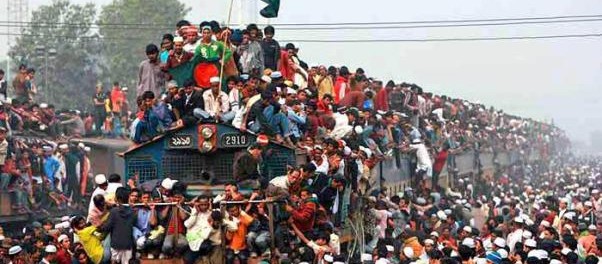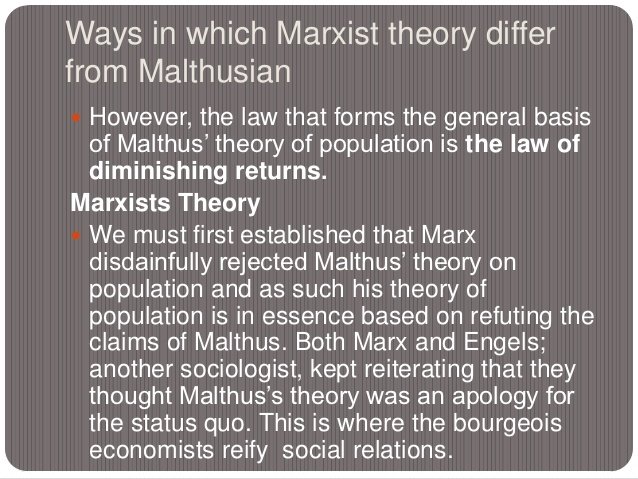A summary of Karl Marx's theory of population
Over the years, several theories have been coined in a bid to predict the future of human life—whether or not eventually humanity will come to an end, thus, an extinction of humanity. The most popular and widespread of these theories is Robert Thomas Malthus’s theory which offers a detailed essay on the future of humanity given the ever-increasing human population and its associated food production. In light of the frightening disparity, Robert Malthus predicts a possible extinction of human life unless some measures are put in place to curb the possibility. While many people who have read Malthus’s theory dread the possibility of it to the extent of suggesting that radical measures be put in place to avoid its happening, Malthus himself opined relatively lax measures which he divisively called positive and preventive checks. However some theorists have also aired their disagreement with Robert Malthus’s prediction, notable amongst whom is world-renowned Communist Karl Marx.
Karl Marx (1818-1883) is heralded worldwide as the father of Communism, and even though he didn’t provide a specific theory on human population growth and its associated effects on humanity, a deduction is made from his theory of communism which awards him a rather minute surplus theory of population. It is submitted that Karl Marx opposed and criticized the Malthusian theory of population.
Given his background in communism Karl Marx submits that population increase should be perused in the context capitalism—thus a capitalist gives to labor as wage a small share of labor’s productivity, and the capitalist keeps the lion’s share of the productivity. Given consistent introduction of machinery, the capitalist increases the surplus value of labor’s productivity and pockets the surplus—the surplus being the difference between labor productivity and the wage level. When more and more machinery is introduced, workers are laid off, thereby creating a pool of unemployment which affects the wage level and pushes it down. Under these conditions, poor parents remain poor and a large part of the human population remains literally surplus. Poverty, hunger and other social ills are therefore evils of capitalism.
In furtherance population growth is therefore as a result of the unjust consequences of capitalism and not what Robert Malthus submits as the result of the ignorance and inferiority of the poor. Karl Marx believes that landlordism, unfavorable and high man-land ratio, uncertainty regarding land tenure system and the ilk are responsible for low food production in a country. Only in places where food production is inadequate does population growth become a problem. Therefore according to the father of communism, in a society where food production does not lag behind, there are no problems of population growth.
From the above submission Karl Marx’s criticism of the Malthusian theory of population can be summarized in the following words: starvation is the result of the uneven distribution of wealth and its accumulation by capitalists. It therefore has nothing to do with population growth. Population is dependent on economic and social organization. Consequently problems of overpopulation and limits to resources are inevitable features and result associated with the capitalist system of production.
WHAT ARE YOUR OPINIONS ABOUT KARL MARX's THEORY? SHARE THEM!
IMAGES TAKEN FROM GOOGLE
PLEASE UPVOTE, COMMENT AND RESTEEM.


Thanks for the info @khojo
Thanks for the upvote.
Most informative post I've read today. Thanks for sharing man.
Thanks for passing through
So if I'm understanding this correctly then the Marxist theory goes that human excess population can only be measured by the level of unemployment within society?
Things such as environmental destruction, lack of food and water, species loss, habitat loss, rising sea levels, pollution and climate change are not measures by which we can assess whether the human population of Earth is excessive and unsustainable?
Or at least, if those are acceptable measures of over-population, it's only because they are side-effects of poverty through lack of employment rather than excessive consumption, excessive capitalism or excessive demands on a finite system?